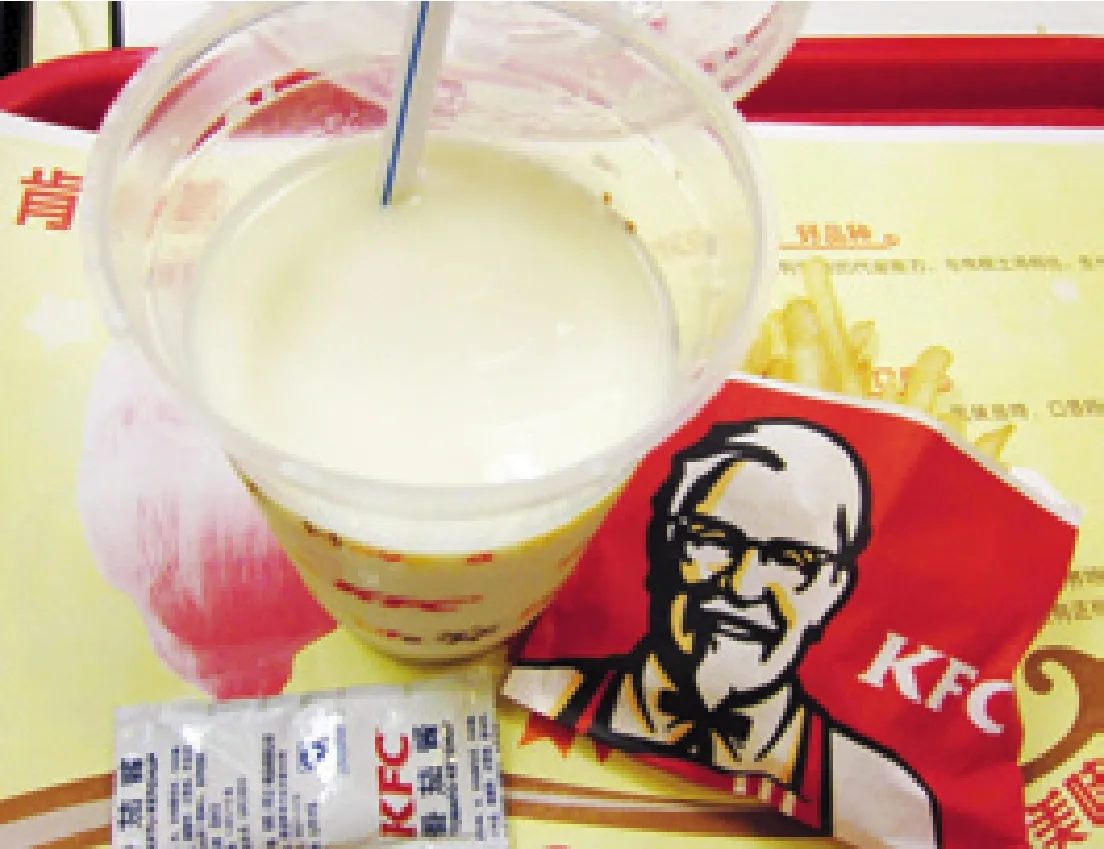WEEKLY WATCH
2010-10-14
WEEKLY WATCH
OPINION
Taxis in Bad Weather
This summer, Beijing seemed to have more rainy days than usual. Residents complained it was too dif fi cult to take a taxi on rainy days, as drivers refused to pick them up. The Beijing Municipal Commission of Transport has therefore demanded Beijing’s taxi companies encourage their employees to maintain a 95-percent dispatch rate in bad weather.
Logically, bad weather means huge profits for taxi drivers, but why do they choose to refuse passengers? The basic reason is because when one driver operates a single car he has to pay at least 5,175 yuan ($796)a month to taxi companies, while two-driver teams using the same car have to pay 8,280 yuan ($1,274). That is, every day, a driver owes his/her employers 200 yuan ($30.8) or so. Here is the headache: They will make no money if they do not take passengers, but if their cars get stuck in mud on rainy days,who will share their losses?
Pressed by taxi companies’ high fee charges and rising fuel prices, taxi drivers hope to take as many passengers as possible every day. On rainy days, however, drivers will easily get stuck in certain places and the fares they earn for the day won’t pay off the day’s fuel costs and company charges.
To encourage them to work in bad weather, taxi drivers must fi rst be relieved of the heavy fi nancial burdens.
Beijing News
Food Safety Supervision
Soon after KFC was started charging high prices for soybean milk reconstituted from powder, and using recycled oil, it was revealed a McDonald’s outlet in Miyun District, Beijing, exposed raw materials in broken packs to sunshine. These two foreign fast food chains are now facing credibility crises in China, although they have long enjoyed good reputations for clean environments and high standards of hygiene.
Why are these fast food chain businesses, which claim to practice globally unified standards, utilizing unhygienic procedures in China? KFC tries to control food quality through two interactive procedures—QSC (quality, service and cleanliness) and operations facility reviews. Thanks to its disciplined practices in other parts of the world,KFC is widely praised for its quality service.Why doesn’t KFC bother to do so in China?
To maximize pro fi t margins is businesses’ instinct, and if possible, they may even trample on the laws. If businesses fi nd disciplined procedures will add to their costs and throw them into disadvantageous situations,while no disciplined procedures can also ensure successful operations, do you think they will restrict themselves here and there? In a word, without rigid laws, self-discipline is not compulsory for businesses.
Although a number of departments are supposed to be food safety supervisors in China, the majority of food safety risks are revealed by the media and consumers. Even if safety problems do occur, the punishment is so light that businesses don’t take it seriously at all.
On one hand, China’s food safety is fully at risk. On the other hand, few food businesses are severely punished. Gradually,foreign food companies are also beginning to play tricks in China. The absence of strong legal deterrence is threatening China’s food safety.
Guangming Daily
Preventing Oil Spills
Two months after the Penglai 19-3 oil spill accident in the Bohai Bay,ConocoPhillips China President Storaker began holding media interviews. Regarding Chinese lawyers’ joint efforts to claim for compensation of billions of yuan and the company’s misconduct in dealing with the situation, Storaker appeared to be indifferent and careless. The company’s policy seems to be dragging on.
Oil and mud need to be cleaned up, and compensation should be offered. The marine environment keeps changing, so delay and waiting will make it more dif fi cult to collect pollution evidence.
As the Chinese lawyers have requested, ConocoPhillips must set up a longterm compensation fund. Besides, a plan should be worked out to restore scallop production and safety standards in Bohai waters to the level they were before the accident. But, without timely evidence collection, the fi nal compensation will be an indeterminate number.
China remains a developing country, but by no means should it pay an endless ecological price for GDP growth. Apart from the lawyers’ lonely struggle, it’s more important for the government to stand up for the Bohai Bay and for the country to develop a strict law to cope with similar environmental pollution accidents.
Qianjiang Evening News
Museum Management
The Palace Museum has been hit by a series of scandals in recent months. Who does the Palace Museum belong to? It belongs to the Chinese people and even the world’s people as a whole. As heirs of the museum’s treasures, the Chinese are entitled to reveal and criticize curators for their misbehavior.
The analysis of the many scandals reveals these problems result from conflicts between the museum’s nature as a public institution and its profit-driven operating mode. When its nature as a public institution is somewhat neglected, the museum is exploited for certain privileged groups’ interests.
This is not a problem limited to the Palace Museum, it also shows de fi ciencies in China’s current administrative system in the cultural industry, a problem facing China’s public cultural institutions.
To operate a museum demands professional knowledge and techniques, which is the case in almost all museums in the rest of the world. But, in China, many cultural relic experts are usually not in the administrative team.
For the Palace Museum, accepting public supervision and restoring their public nature are the most effective way to avoid further scandals and win back people’s trust.
People’s Daily

CHEATING DRINKS:Ice-cold soyabean milk reconstituted from powder in a KFC outlet in Beijing sells at 7 yuan ($1.08) per cup, raising questions on international brands’credibility
